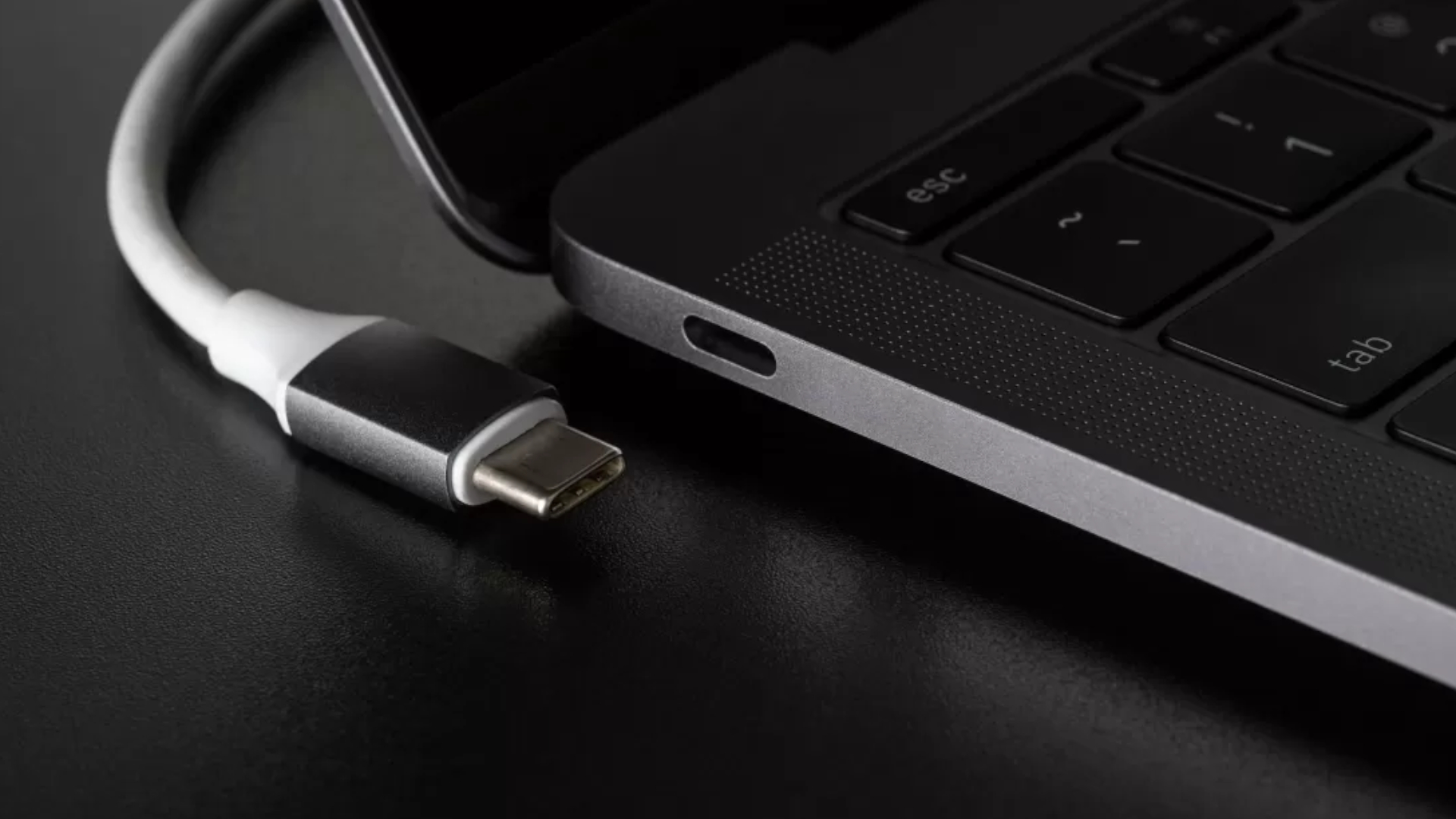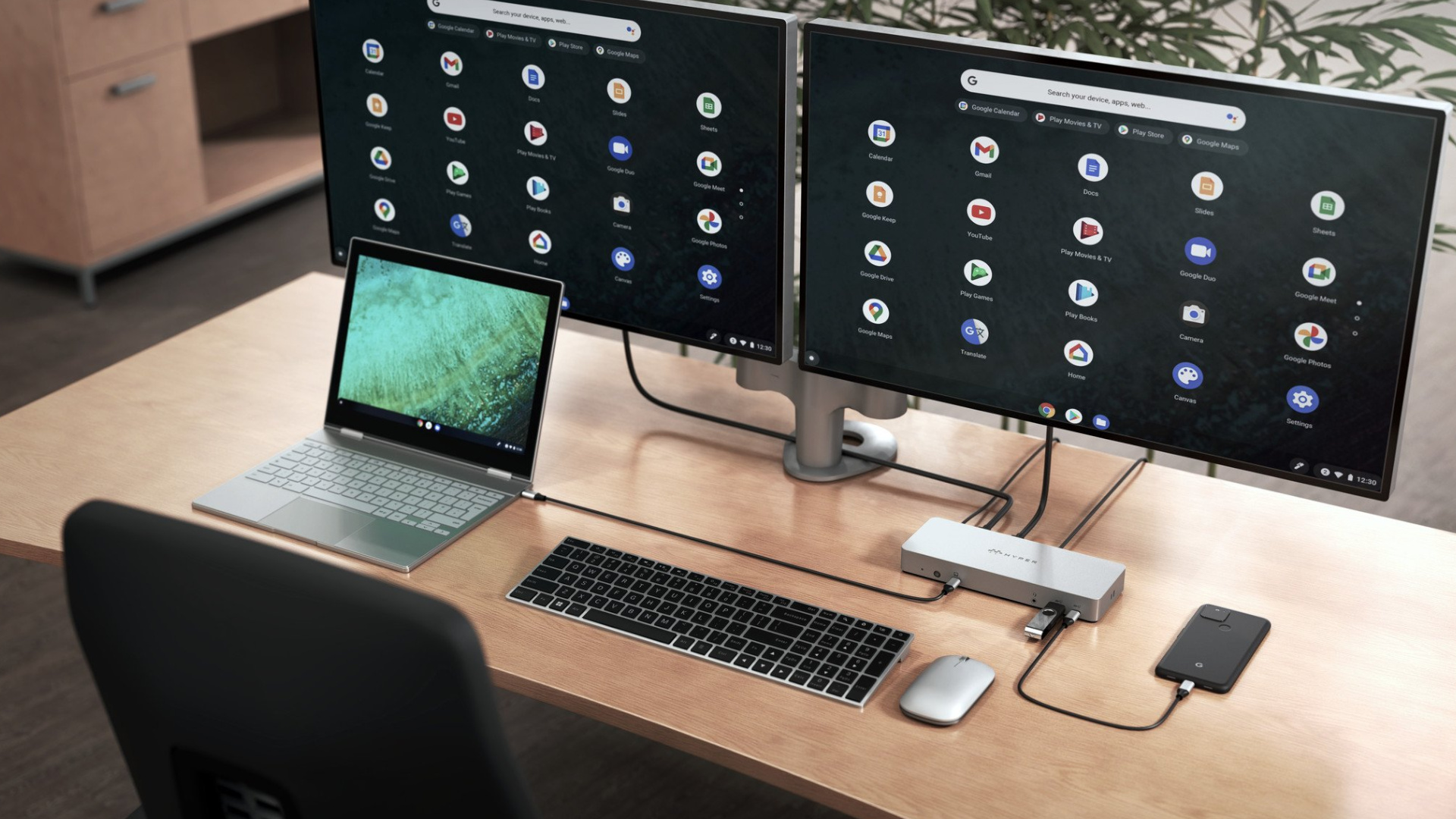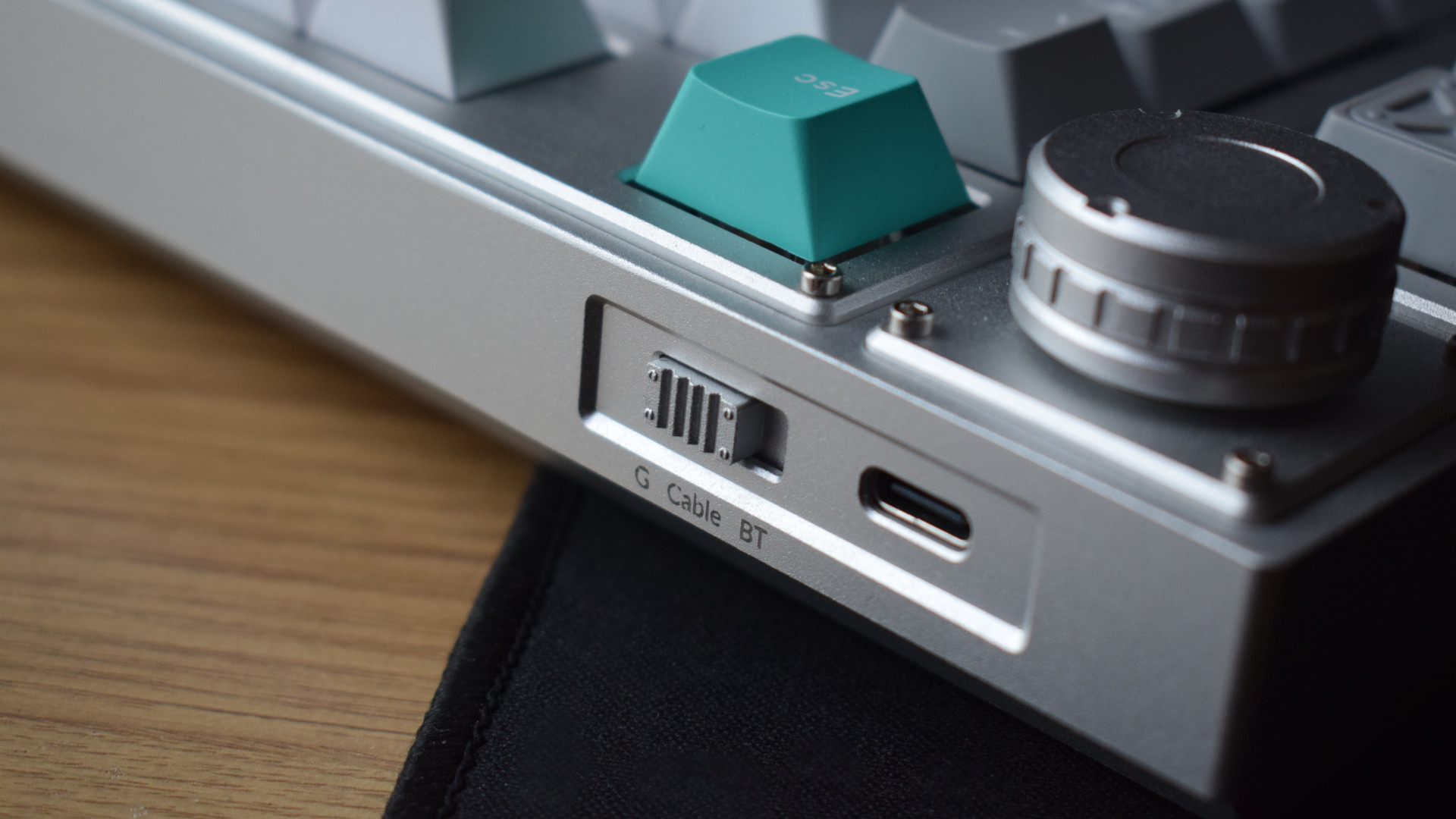A laptop only needs one port — fight me
But before you do, hear me out

Sign up to receive The Snapshot, a free special dispatch from Laptop Mag, in your inbox.
You are now subscribed
Your newsletter sign-up was successful
Is your laptop low on ports? Well, I suppose that glass is half empty, too, huh? Stay your eternal pessimism, reader. This could very well not be an issue of limited port selection, but a case of poor perspective. Allow me, if you will, to pose my hypothesis, the only way a laptop can be said to be low on ports, is if it has no ports. (I shouldn’t give Apple any ideas.)
Now look, I, like you, am no fan of the pedantic internet hot take. I’m not here to spout nonsense to boil your blood and rustle your jimmies. Those kinds of hot takes are as common as fleas on an alley cat and twice as likely to irritate if you get too close to them. So trust me when I tell you this, I believe it when I say it, I already know I’m right, and by the end of this article, you too will agree with me when I say…
A laptop only needs one port
I’m well aware that this will attract some flak from the technophiles, but stop screaming about your USB Type-A devices for just a moment and hear me out. Laptops are designed with portability as a key design feature. That’s why they keep getting smaller, thinner, and lighter with each passing generation.
It’s that metamorphosis that causes available ports to become so scarce, as manufacturers struggle to find the space for larger legacy USB and Ethernet ports or video outputs. With only one port to concern ourselves with, it simplifies the design of laptops even further, allowing for slimmer chassis, and any additional space being filled by more pressing components such as an extended battery or improved cooling methods.
That one remaining port, preferably a USB-C (with DP Alt mode) or Thunderbolt, is enough to handle data, Power Delivery, and even support an external display. “But what about my legacy USB ports?!” I hear you cry, well, settle down, we’re getting there.
Because docking stations are the future

Why would anybody need a laptop with more than one port, when docking stations and USB hubs already exist? Let’s face it, we’re past the tipping point of laptops featuring an accommodating level of ports (unless you’re making use of a chunkier gaming laptop, but even then it’s slim pickings).
So why should we cling onto the smattering of ports we’ve been left with when we can convert that one port into 18 with something like the CalDigit Thunderbolt Station 4 — a speedy dock with plenty of port variety that can greatly expand your external display potential, keep your setup ultra-clean, and still provide a considerable amount of charge (up to 98W) as well.
Sign up to receive The Snapshot, a free special dispatch from Laptop Mag, in your inbox.
The best docking stations all deliver much of that, and occasionally more, doubling as ergonomic stands and micro soundbars, or tripling as an external SSD enclosure. And, the best USB Type-C hubs offer a more affordable, and portable, docking station-like experience that’s ideal for smaller setups or occasional accessory users.
Undoubtedly, as laptops become thinner and more compact (and in turn sacrifice more ports along the way), docking stations will become an ever more essential hardware expansion and a vital part of any laptop-based computing setup.
So why not get ahead of the curve now and enjoy a richer, more versatile experience that maximizes your laptop’s potential? Augment your inputs with a whole spread of ports offering you the chance of a fully fleshed-out workstation or a totally decked-out battlestation.
- “Short” on ports? Check out our selection of the best docking stations.
Because who needs wires when you have Bluetooth?

Wires? Pah! What are you, some sort of Luddite Pinocchio? Your wires are just strings that hold you down, they’ll make you fret, and make you frown — and likely turn your desk into some sort of spaghetti-fest along the way. Modern laptops all offer a wireless connectivity option perfectly suited for peripheral connectivity: Bluetooth!
Bluetooth is a wireless technology named after 10th-century Danish king and Viking, Harald Bluetooth — who, as legend has it, invented the technology after becoming increasingly frustrated when the cable for his PSX controller would pop out from the console when he leaned back in his throne. Now that may or may not be factually accurate information, I’m sure as hell not going to spend the time looking it up, but until I’m faced with evidence to the contrary, this factoid remains as some sort of Schrodinger’s tidbit both true and false at the same time.
Regardless of its origins, Bluetooth support can be found in just about every peripheral you’d need to litter your desk with: games controllers, computer speakers, headsets, keyboards, mice, microphones, lighting, you name it. Even your phone and tablet can connect with a laptop using Bluetooth, and Windows Phone Link can use a combination of that and Wi-Fi to manage your smartphone remotely.
It’s practically a wireless wonderland just waiting to be explored. Though, admittedly it’s by no means perfect. One gripe some may have with built-in Bluetooth is the lack of audio-focused codecs, meaning headsets and wireless computer speakers might not sound their best by default, or struggle with lip-sync issues.
However, the best Bluetooth USB adapters can solve that, especially with USB-C compatible adapters like the Avantree C81 that offer aptX Low Latency support for high-quality Bluetooth 5.0 audio passthrough. However, any legacy USB Type-A adapter can work if paired with our first solution, with docking stations typically unlocking a host of modern and legacy USB ports.
Outlook
So there you have it, laptop ports are going the way of the dinosaurs, but as long as you have one, life will find a way. So, why complain? I can understand if you own a powerful gaming laptop that you’d prefer to have a proprietary power port. And that’s something I’m more than willing to concede on. Though, “Laptops only need one port (and a proprietary charger if it’s for gaming)” isn’t nearly as catchy of a title.
You can fight me on this one all you like, but you know it makes sense. We’ve given manufacturers the brunt of our ire for too long on this one, and maybe it’s time we judge these port-shy portables a little less harshly when it comes to their I/O offerings.
More from Laptop Mag
- Best laptop docking stations in 2024
- 4 things you need to know before buying a docking station
- Why are docking stations so damn expensive?

Rael Hornby, potentially influenced by far too many LucasArts titles at an early age, once thought he’d grow up to be a mighty pirate. However, after several interventions with close friends and family members, you’re now much more likely to see his name attached to the bylines of tech articles. While not maintaining a double life as an aspiring writer by day and indie game dev by night, you’ll find him sat in a corner somewhere muttering to himself about microtransactions or hunting down promising indie games on Twitter.
